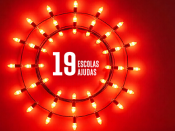Por Carlos Pires (Instituto Dom Luiz e Departamento de Engenharia Geográfica, Geofísica e Energia, Faculdade de Ciências, Universidade de Lisboa, Portugal).
Causal inference is at the heart of the scientific method and of the construction of scientific theories explaining the drivers or causes leading to posterior effects or consequences. However, according to Karl Popper (The Logic of Scientific Discovery, 1935/1959), scientific theories can never be proven, but only falsified (or perfectioned) when they predict unobserved facts. The theoretical formulation of causality was pioneered by Granger–Sims (1980) through the fundamental axiom that "the past and present may cause the future, but the future cannot cause the past". Later, Judea Pearl (e.g., Stat. Surveys, 2009) made the relevant statement that “Correlation is not causation" by pointing out that stationary statistical cause-target links are necessary but not sufficient for causation, being thus necessary to individualize potential causes in the dynamics and check their effects.
An important question is how, one can prove a causal link between phenomena in the empirical sciences. We will present a list of methods to diagnose and quantify causations in time evolving systems with discrete or continuous probabilistic states. These methods have the advantage that they are essentially indifferent to any laws of, or other accumulated heuristic ideas on, the field to which they are being applied: whether the time series one considers are from the environmental sciences, biology, economy, or medicine does not matter, only their length and accuracy does. Important concepts like single and synergetic causations, causal graphs and the dependence of causation from time-scales will be introduced.
Relevant applications of the causality inference range from the controllability of systems (e.g. in medicine, environment), its predictability assessment and the detection of feedbacks.













